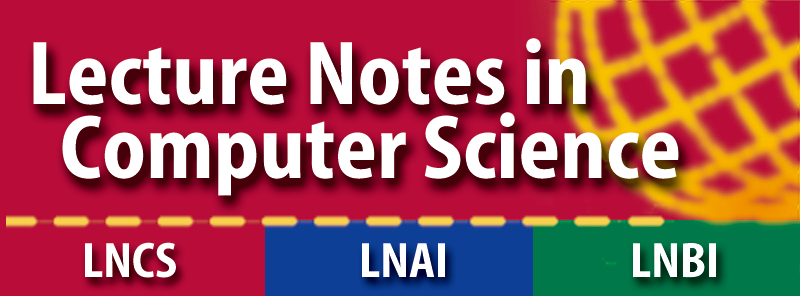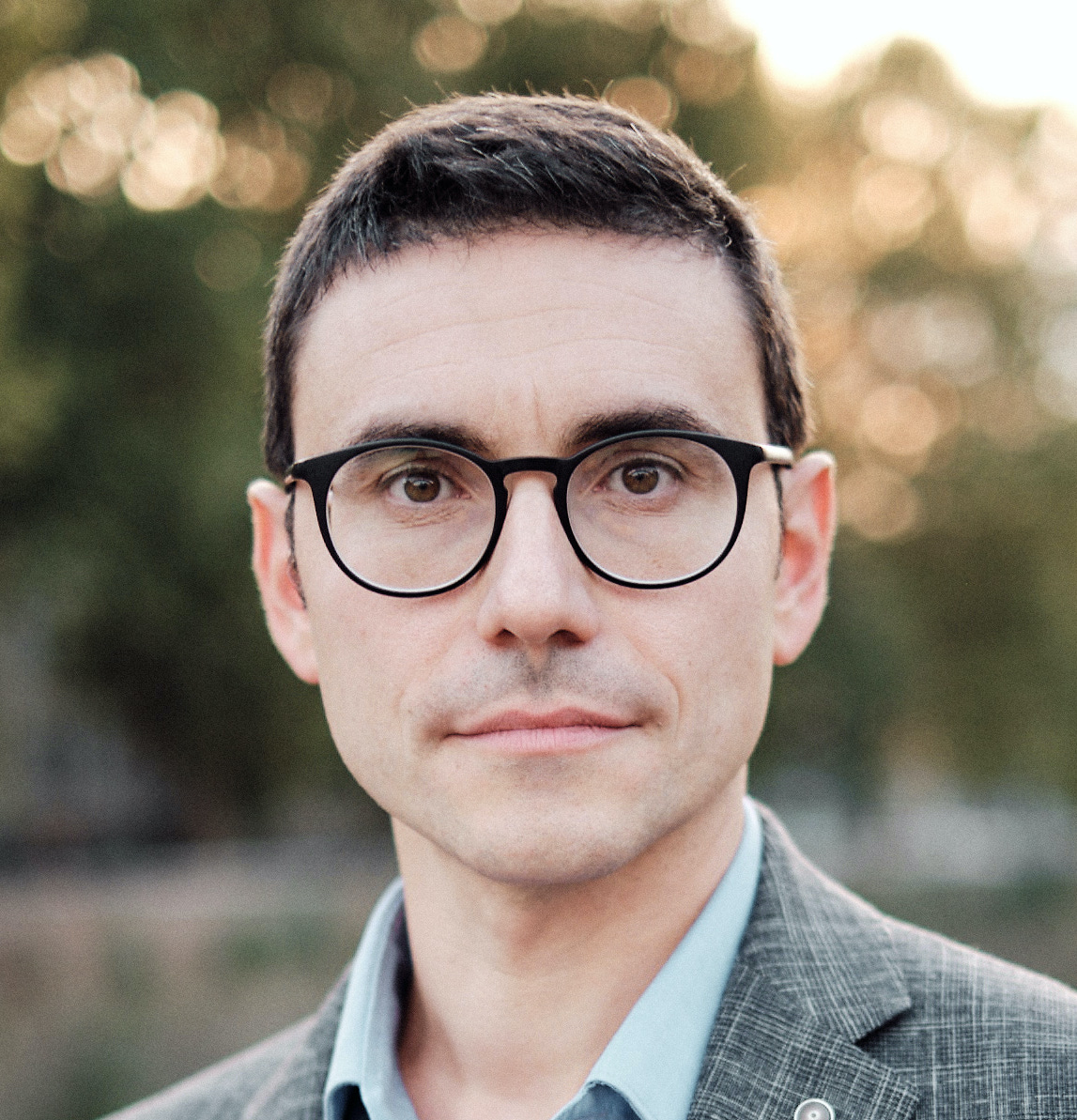Full Papers 
Over the years, TPDL was established as an important international forum focused on digital libraries and associated technical, practical, and social issues. TPDL encompasses the many meanings of the term “digital libraries'' embracing the whole spectrum of the LAM community; operational information systems with all manner of digital content; new means of selecting, collecting, organizing, and distributing digital content; and theoretical models of information media, including document genres and electronic publishing. Digital libraries may be viewed as a new form of information institution or an extension of the services libraries provide.
Representatives from academia, cultural heritage institutions, government, industry, research communities, research infrastructures, and others are invited to participate in this annual conference. The conference draws from various research areas: computer science, information science, data science, librarianship, archival science and practice, museum studies and practice, technology, social sciences, cultural heritage, digital humanities, and scientific communities.
TPDL historically approached “digital libraries” embracing the field at large and also comprehending three key areas of interest that can be synthesized as scholarly communication (e.g., research data, research software, digital experiments, digital libraries), e-science/computationally-intense research (e.g., scientific workflows, Virtual Research Environments, reproducibility) and library, archive, museum and information science (e.g., governance, policies, open access, open science). As digital cultural heritage ties into digital humanities, TPDL aims to include this closely related field.
A selection of the best papers accepted to TPDL 2023 will be invited to submit an extended version to the International Journal of Digital Libraries
To broaden the scope of TPDL 2023, we propose four special tracks within the main program:
- Data Sharing and Data Citation: this track aims to attract papers about (but not limited to) new challenges and innovative approaches connected to sharing FAIR data, sensitive data and legal aspects of data sharing, different approaches to data citation, data credit distribution, the use of datasets and databases in scholarly communications, new measures for research assessment, and the role of data in scientific research.
- Applications and Digital Library Systems: this track aims to attract research and practitioner papers about applying established tools in new DL settings and innovative tools for DLs. This track covers various topics related to digital library systems and their applications, including system architecture and design, system scalability, interoperability, and security. Techniques for improving the search experience in digital library systems. User interfaces and user experience and studies of user behavior and user needs in the context of digital libraries.
- Digital Preservation and Curation: papers in this area would cover topics related to the preservation and curation of digital resources in digital library systems, including issues such as format migration, metadata standards, and long-term preservation strategies.
- The Use of Persistent Identifiers in Digital Libraries: the persistent identification of all entities within the research ecosystem is important in ensuring that research and its outputs are FAIR and connected. Papers could focus on different identifier systems, the creation and use of metadata, and innovative approaches to establishing connections between entities.
Note that the papers submitted to the special tracks follow the same review process as the regular papers and will be published in the TPDL 2023 proceedings as regular full papers.
TPDL 2023 is hosted by the University of Zadar and will take place in Zadar, Croatia, from 26 to 29 September 2023. This is an in-person event. This choice does not exclude the possibility of following talks online, but authors of accepted papers are strongly encouraged to come and present in person. We aim to encourage discussion formally after a paper presentation and informally during social events and coffee breaks.
Important dates
Note that all deadlines are 23:59 (11:59 pm) in the AoE (Anywhere on Earth) time zone on the date specified.
Main Conference: September 26–29, 2023
Research and Practitioner papers:
- Submission deadline for Full Papers:
26 May 20235 June 2023 (AoE) - notification: 5 July 2023 (AoE)
- camera-ready for all the submissions: 24 July 2023
Submission
Click here to submit a paper.
Contribution Types
Research Papers (up to 12 pages + unlimited references) present high-quality, original research of relevance to the TPDL community. Submissions should detail their methods and techniques sufficiently to enable replication and reuse. Accepted papers will be published in the conference proceedings and presented as long conference talks.
Practitioner Papers (up to 12 pages + unlimited references) present high-quality applied work of relevance to the TPDL community. Submissions should focus on results of direct relevance to practitioners and institutions in the TPDL community. Methods, tools, and techniques should be detailed sufficiently to enable application by other institutions. Accepted papers will be published in the conference proceedings and presented as long conference talks.
Submission Guidelines
Submissions should detail their methods and techniques sufficiently to enable replication and reuse. Accepted papers will be published in the conference proceedings and presented as long conference talks.
Papers must be in the Springer LNCS
style. 
The review process is single-blind, so you can include the author names in the manuscript you submit.
Topics of Interest
Submissions are welcome concerning theory, architectures, data models, tools, services, infrastructures about the following topics (but not limited to):
Publishing science
- FAIR data and software
- Research objects
- Nanopublications
- Digital Preservation and Curation
- Supporting Science Reproducibility
- Metadata
- Research Data Management
- Research Output Management
Data
- Data Search
- Research Data Discovery
- Data citation
- Data and Information Lifecycle (creation, store, share, and reuse)
- Data and Document Provenance
- Linked Data and Open Data
- Data Repositories and Archives
- Data and Research Infrastructure
- Data Stewardship
- Data cleaning
- Data Integration
- Data curation
Discovering science
- Information Retrieval
- Recommendation systems
- Document (Text) Analysis in support of discovery
- Multimodal and Multilingual Data Access
Monitoring and assessment of science
- Science of Science
- Scientometrics and bibliometrics
- Scholarly Communication Knowledge Graphs
Knowledge creation
- AI / Machine Learning/ Data mining for DLs
- Knowledge Bases
- Entity Extraction and Linking
- Ontology development
Digital Humanities
- Digital Cultural Heritage
- Digital Terminology
- Computational Linguistics
- Digital History
- Digital Archeology
- Knowledge Organization for Digital Humanities
- Digital Research Methods on Cultural Heritage
- Digital interfaces for Digital Humanities Research and Practice
Human-Computer Interaction
- User Interface and Experience in Cultural Heritage Institutions
- Information Interaction for Cultural Heritage Applications
- User Participation and Experience
- Information Visualization and Visual Analytics
Organization
Program Chairs
-

Omar Alonso, Amazon, USA -

Helena Cousijn, DataCite, Germany -

Gianmaria Silvello, University of Padua, Italy
Senior PC
-
Maristella Agosti, Università di Padova
-
José Borbinha, INESC-ID, Instituto Superior Técnico, Universidade de Lisboa
-
Fabien Duchateau, UCBL, LIRIS
-
Edward Fox, Virginia Tech
-
Mark Hall, The Open University
-
Martin Klein, Los Alamos National Laboratory
-
Michael Nelson, ODU
-
Christos Papatheodorou, National and Kapodistrian University of Athens
-
Gabriella Pasi, UNIMIB
-
Thomas Risse, University Library of Frankfurt
Program Committee
-
Sawood Alam, Internet Archive
-
Daniel Alemneh, University of North Texas
-
Marco Angelini, University of Rome "La Sapienza"
-
Miriam Baglioni, CNR
-
Wolf-Tilo Balke, Univ of Hannover
-
Eleonora Bernasconi, University of Bari Aldo Moro
-
Carlos Bobed Lisbona, University of Zaragoza
-
Zeyd Boukhers, University of Koblenz
-
Ricardo Campos, Polytechnic Institute of Tomar
-
Yinlin Chen, Virginia Tech
-
Helena Cousijn, DataCite
-
Giorgio Maria Di Nunzio, University of Padua
-
Boris Dobrov, Research Computing Center of M.V.Lomonosov Moscow State University
-
Guglielmo Faggioli, University of Padova
-
Stefano Ferilli, University of Bari
-
Anderson Ferreira, Universidade Federal de Ouro Preto
-
Yannis Foufoulas, University of Athens
-
Nuno Freire, Europeana Foundation
-
Fabio Giachelle, University of Padova
-
William A. Ingram, Virginia Polytechnic Institute and State University
-
Antoine Isaac, Europeana / VU Amsterdam
-
Adam Jatowt, Kyoto University
-
Jaap Kamps, University of Amsterdam
-
Johannes Kiesel, Bauhaus-Universität Weimar
-
Claus-Peter Klas, GESIS
-
Andrea Mannocci, CNR - ISTI
-
Stefano Marchesin, Università di Padova
-
Nicola Orio, University of Padova
-
Edie Rasmussen, University of British Columbia
-
Andreas Rauber, TU Wien
-
Irene Rodrigues, U Évora
-
Andrea Scharnhorst, Royal Netherlands Academy of Arts and Sciences
-
Heiko Schuldt, University of Basel
-
Martin Schäler, University of Salzburg
-
Giuseppe Serra, University of Udine
-
Hussein Suleman, University of Cape Town
-
Anna Maria Tammaro, University of Parma
-
Carla Teixeira Lopes, University of Porto
-
Francesca Tomasi, Università di Bologna
-
Ricardo Torres, Wageningen University and Research (WUR, Netherlands) and Norwegian University of Science and Technology (NTNU, Norway)
-
Thanasis Vergoulis, Athena Research Center
-
David Walsh, Edge Hill University
-
Michele Weigle, Old Dominion University
-
Peter Williams, Center for Astrophysics | Harvard & Smithsonian